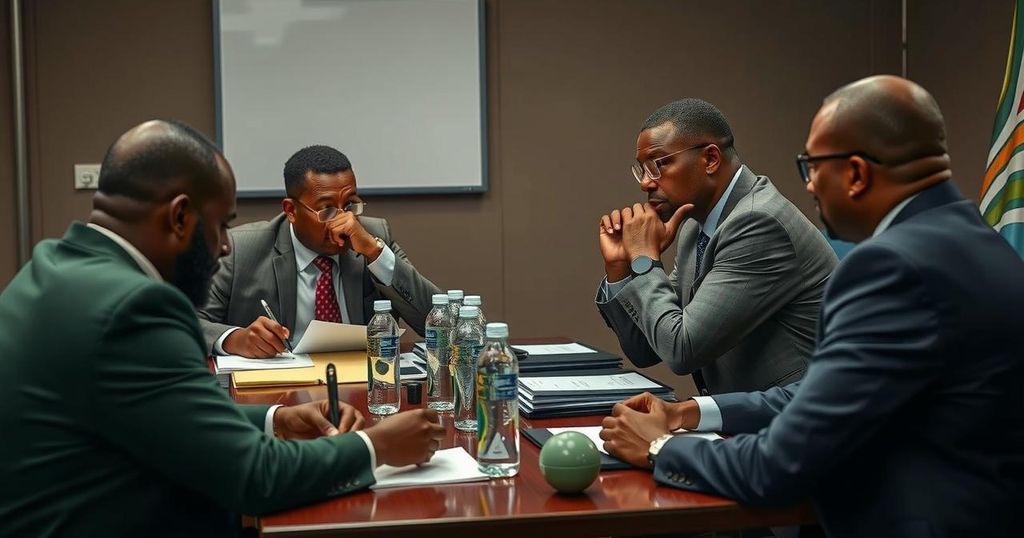Guinea Bissau President Indefinitely Postpones Legislative Elections
President Umaro Sissoco Embalo of Guinea Bissau has indefinitely postponed the legislative elections scheduled for November 24, citing instability and logistical challenges. The elections follow the dissolution of parliament following an attempted coup and reflect the country’s ongoing political turmoil and economic struggles.
On Monday, Guinea Bissau’s President Umaro Sissoco Embalo announced the indefinite postponement of the legislative elections originally scheduled for November 24. This decision follows Embalo’s earlier dissolution of parliament in December 2023, a move prompted by an attempted coup that occurred three days prior. The postponement reflects the ongoing instability in the nation, a situation exacerbated by logistical challenges and insufficient funding, as highlighted by Territorial Administration Minister Aristides Ocante da Silva. The official cancellation of the election was confirmed by Embalo’s political advisor, Fernando Delfim da Silva, during a press briefing at the presidential palace, although no new date for the elections has been announced.
Guinea Bissau, a small West African nation, has a tumultuous political history characterized by instability and multiple coups since its independence from Portugal. The country faces significant economic challenges, which complicate efforts to organize elections. Following administrative turbulence, awareness surrounding the necessity for legislative elections has grown, particularly after the parliament was dissolved. The current political landscape is complicated by a coalition controlling parliament that opposes the president, leading to an environment of heightened tension and uncertainty over future governance. The postponed elections are indicative of ongoing struggles to establish a stable constitutional order.
The indefinite postponement of legislative elections in Guinea Bissau highlights the continued political instability faced by the nation. President Embalo’s decision, driven by logistical and financial challenges, further complicates the political landscape, where tensions between the government and opposition forces persist. As the country grapples with its difficulties, the path toward establishing a functional and stable political system remains fraught with challenges that require careful navigation.
Original Source: punchng.com




Post Comment